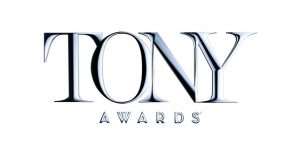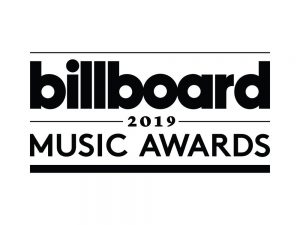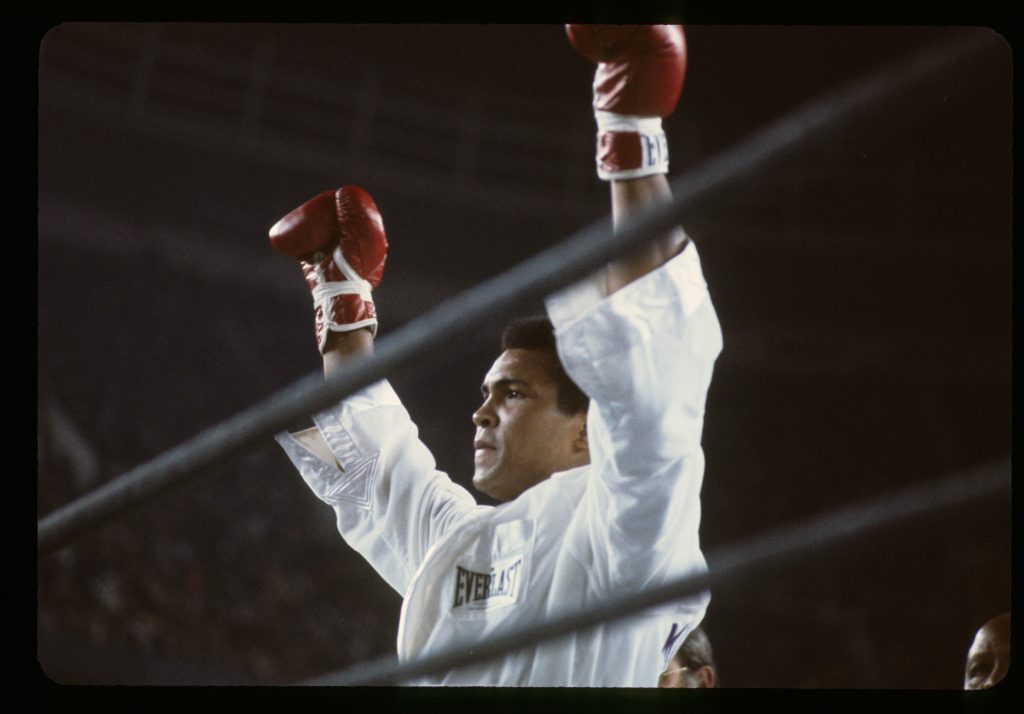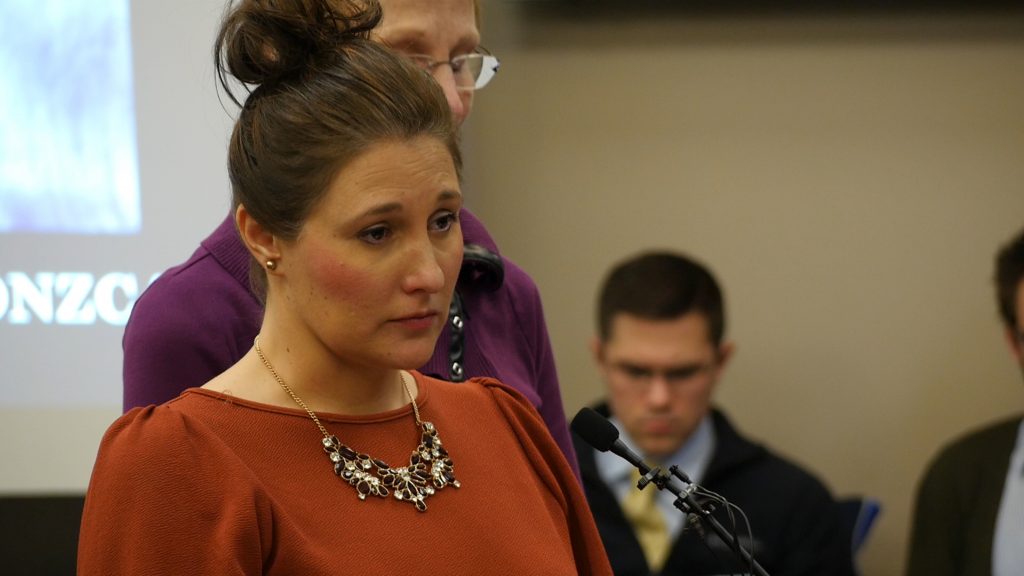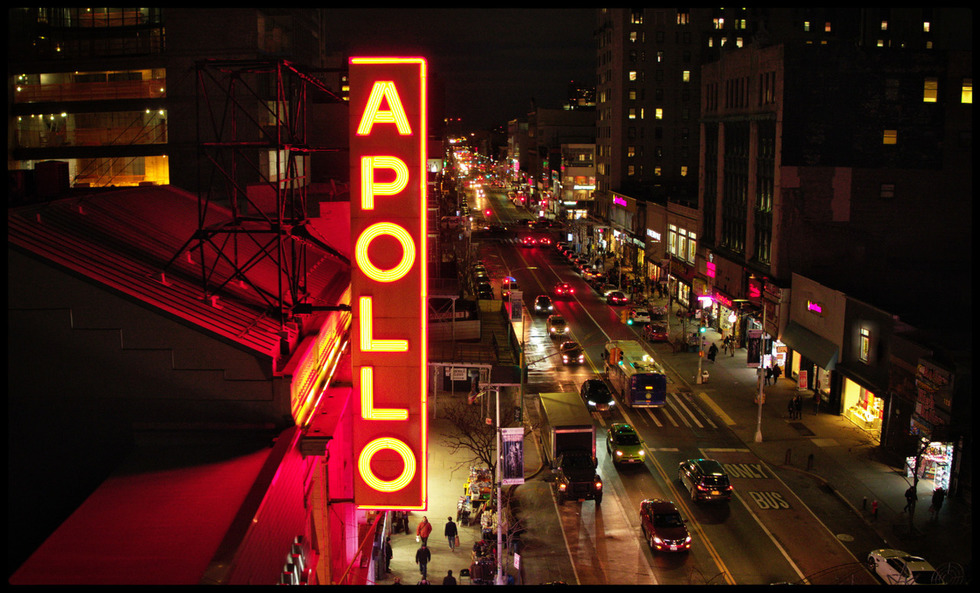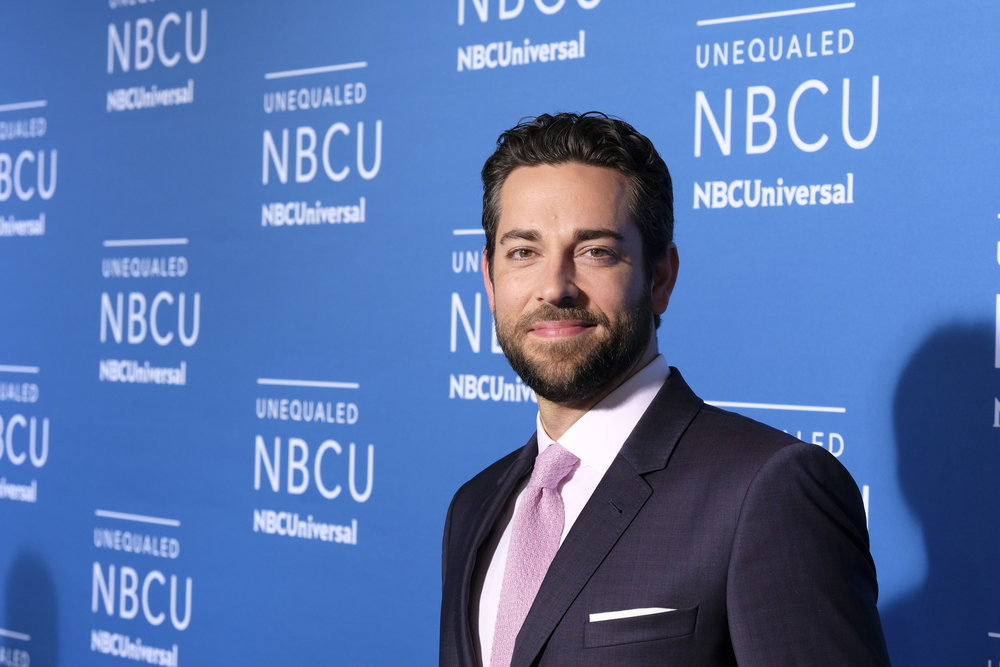April 30, 2019
by Carla Hay
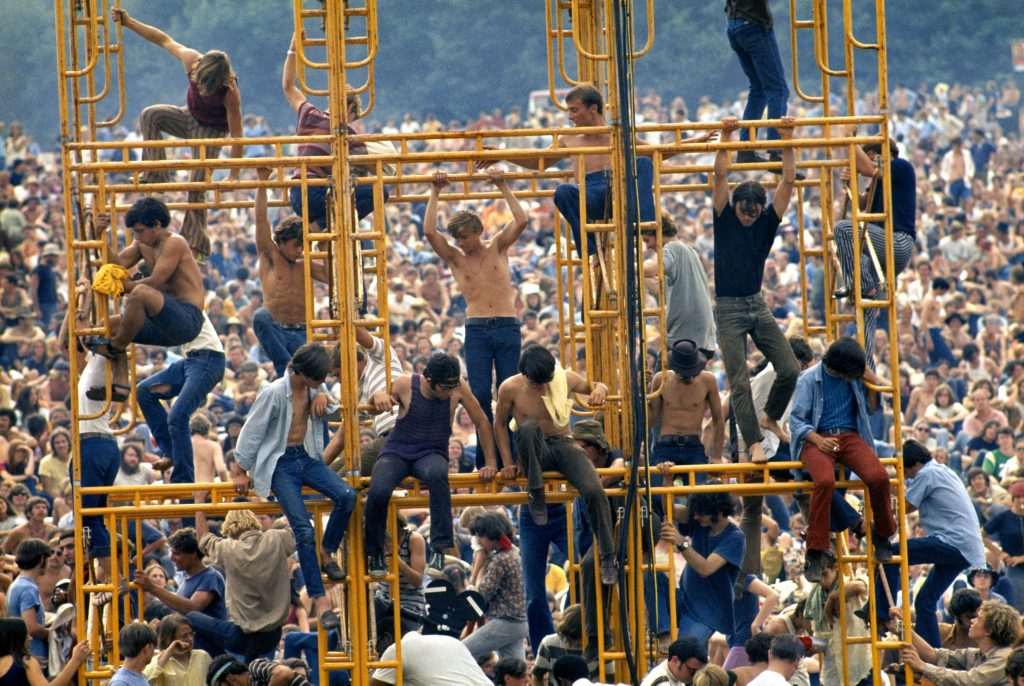
“Woodstock: Three Days That Defined a Generation”
Directed by Barak Goodman
World premiere at the Tribeca Film Festival in New York City on April 28, 2019.
To celebrate the 50th anniversary of the legendary 1969 Woodstock Music Festival, PBS commissioned a documentary about the event, which is often credited as being the most influential concert festival in history. Emmy-winning director Ken Burns was announced as the documentary’s director, but he left the project. The documentary ended up in the very capable hands of director Barak Goodman, whose credits include the Oscar-nominated documentary “Scottsboro: An American Tragedy” and the gerrymandering documentary “Slay the Dragon,” which had its world premiere at the 2019 Tribeca Film Festival.
Of course, this PBS “Woodstock” documentary and any other movie about Woodstock will be overshadowed by director Michael Wadleigh’s Oscar-winning 1970 “Woodstock” documentary epic, which is still considered the definitive chronicle of the event. However, Goodman’s “Woodstock” (which has plenty of concert footage from the festival) stands as a solid companion piece. Whereas the original “Woodstock” movie was essentially a concert film, this PBS “Woodstock” documentary attempts to fill in a lot of the behind-the-scenes blanks, much like bonus commentary does on a home-video release.
There has been so much that’s already been written, said and reported about the original Woodstock Music Festival that there is not much new information to uncover. The festival—which took place August 15 to August 18, 1969, in Bethel, New York—was billed as “An Aquarian Exposition: 3 Days of Peace & Music.” (The concert ended up extending into the morning hours of a fourth day.) The lineup was a who’s who of many of the biggest names in music in the late 1960s, including Jimi Hendrix, Janis Joplin, Santana, The Who, Jefferson Airplane, Joe Cocker, the Grateful Dead, Joan Baez, Creedence Clearwater Revival (who were not in the original “Woodstock” documentary), Sly and the Family Stone and Crosby, Stills & Nash. The concert was originally expected to attract about 50,000 people. Instead, approximately 400,000 people showed up and made it an unprecedented cultural event, despite the overcrowding, food shortages, drug-induced freakouts, downpours of rain, safety issues and the underlying threat that the government might shut down the concert.
“Woodstock: Three Days That Defined a Generation” takes a chronological look at the challenges and problems that the festival encountered, told mostly from the perspective of the festival’s organizers and attendees. There are only a handful of artists (including David Crosby and Richie Havens) interviewed for this documentary. All of the new interviews for the movie are voiceovers, which was a wise artistic choice, since video cutaways to talking-head commentators would just distract from the movie’s intentions of transporting viewers back to the Woodstock Festival.
The four people who are given the most credit for being the founders of the Woodstock Festival are John Roberts, Joel Rosenman, Artie Kornfeld and Michael Lang. Roberts (an heir to the Poligrip/Polident fortune) and Rosenman were the producers who put up the money for the event. It was through Roberts and Rosenman’s New York-based Media Sound company that they met Kornfeld and Lang, who both came from music backgrounds. Lang was the only one at the time who had experience as a concert promoter. All of them are interviewed for the documentary, as are other key members of the original Woodstock team, such as director of operations Mel Lawrence and Stan Goldstein, a campground coordinator who researched portable toilet needs for the event.
The opening-day party for Media Sound morphed into the idea of putting on an all-star outdoor festival named Woodstock, much like the 1967 Monterey Pop Festival in California. The city of Woodstock in upstate New York wasn’t actually available, but the idea was to have the festival in a sprawling area in the region, since the urban density of New York City wasn’t an option. Lang was adamant about having the festival in a grassy area, not at a raceway.
The Woodstock promoters originally chose Wallkill, New York, for the concert site. But when Wallkill’s city officials realized that their city would be overrun with hundreds of thousands of hippies and other counter-culture people, they voted in an ordinance to prevent gatherings of more than 5,000 people, thereby canceling Woodstock’s permit. Fortunately, an unexpected hero stepped in to save the festival: a conservative Republican named Max Yasgur, who donated his farm in Bethel for the concert site. Within two days, the city of Bethel approved the permit, and Woodstock was revived, but the festival had to scramble to create the stages and other infrastructure in time for the event. They didn’t have enough time to do a thorough job, and many aspects of the festival’s production were incomplete by the time the festival began. It’s repeated many times in the documentary that Woodstock was under-staffed and under-stocked. Needless to say, because most of the overcrowded festival’s attendees got in for free, Woodstock’s investors lost a lot of money because of this event.
Ironically, Lang’s Woodstock Ventures faced similar financial and legal issues for its Woodstock 50 concert, which had been announced to take place in Watkins Glen, New York, from August 16 to August 18, 2019. At the time of this writing, Woodstock 50’s main investor pulled out (citing concerns about overcrowding and safety), a permit for the festival hasn’t been issued, and tickets haven’t even gone on sale. The concert industry is very different today than it was in 1969, so there probably isn’t enough time to clear all the legal hurdles that Woodstock 50 is facing in order for this 50th anniversary concert to happen.
One of the best things about this PBS “Woodstock” documentary is that it really shines a spotlight on many of the unsung heroes who worked behind the scenes at the original Woodstock Festival—the people who slogged through it from beginning to end. The artists on stage got most of the glory, and most of the celebrities didn’t mingle with the (sometimes literally unwashed) masses in the crowds. The big stars who attended Woodstock also had the luxury of leaving behind the messiness of Woodstock by helicopter, since the festival had traffic jams and roadblocks during the entire event.
Food for Love was a three-person operation that made a huge but underrated difference at Woodstock. The group was hired on relatively short notice, because the original food contractor for Woodstock backed out of the event after Wallkill canceled the festival’s permit. When the food supply at the festival began to run dangerously low, Food for Love, with the help of numerous volunteers, stepped in to help feed people and even gave away a lot of food for free—something that would be unheard of in today’s over-priced festival environment. (According to the documentary, a lot of people “paid” for the free food by giving marijuana joints to the people handing out the food.) Yasgur, who died in 1973 at the age of 53, also provided a lot of the free food from his farm, which inevitably became a garbage-filled disaster area after the festival was over. Milk, oats and rice became welcomed and common nourishment at the festival.
The documentary interviews hippie icon Wavy Gravy, who stepped in to emcee at Woodstock and brought his Hog Farm community to the festival as unofficial security. The Hog Farm called themselves a “please force” instead of a “police force.” Wavy Gravy and the Hog Farm were instrumental in keeping the crowds calmer than they could have been, given the high levels of drug use at the concert. Speaking of drug use at Woodstock, the documentary mentions that the festival was perhaps the first major concert event to have a massive amount of “freak-out” tents, where people tripping out on drugs could go to ride out their experiences. The tents were a necessity, given that medical assistance was also in short supply.
Another aspect of the festival that would be unthinkable today was the lack of adequate communication coming in and out of the festival. Because Woodstock happened decades before smartphones and the Internet existed, the festival had to make news announcements on stage, since most attendees did not have on-site access to radios, TV and newspapers. In addition, announcements were made on stage for festival attendees to contact frantic loved ones or friends who were looking for them. At the festival’s information center, attendees had to pin notes on the walls to get messages to other attendees. It’s hard to imagine today’s generation of young concertgoers being able to cope with these conditions.
Through testimonials of several attendees, the documentary de-mystifies the image of Woodstock being a blissful “peace and love” party. Yes, there were numerous people who had a good time and have fond memories of Woodstock, even if many of those memories were clouded by whatever drugs they were on at the time. But partying at Woodstock wasn’t the whole story. The reality was that most of the attendees had inadequate food and shelter, and things got worse when the festival was hit with rainstorms that caused a lot of disgusting mud. The rain could have caused electrocutions on stage, but fortunately did not.
In addition, government helicopters were constantly hovering, as if ready to step in and treat the festival like a war zone. Nelson Rockefeller, the governor of New York state at the time, kept threatening to send in the National Guard. Speaking of war, the documentary mentions that many of the male attendees of Woodstock were afraid of being drafted into the Vietnam War, so the hovering military helicopters that caused a lot of noise and discomfort probably didn’t help their nerves.
Of course, the best part of the festival that gets the most recognition and the highest praise is the music. The artists who are mentioned the most as being standout acts at Woodstock were Hendrix, Sly and the Family Stone, The Who, Crosby Stills & Nash (who did their second public performance as a group at Woodstock) and Santana. In the documentary, Woodstock Festival opener Havens remembers that he didn’t want to be Woodstock’s first performer on stage, because the concert started late, and he thought the crowd would be angry. (He ended up getting a standing ovation.)
Although this “Woodstock” documentary could have used more artist interviews, they might have overshadowed the testimonials of the non-famous people in this documentary who spent a lot more time at Woodstock than the artists did. In the end, “Woodstock: Three Days That Defined a Generation” is a deeper dive into the harsh realities behind the festival. The documentary may not have a lot of new information, but it’s recommended viewing for people who want more of the real story of what happened behind the scenes.
PBS/American Experience Films will release “Woodstock: Three Days That Defined a Generation” in New York City on May 24, 2019, and will expand the release to more U.S. cities on June 7, 2019. PBS will premiere “Woodstock: Three Days That Defined a Generation” as part of the PBS “American Experience” series on August 6, 2019.

